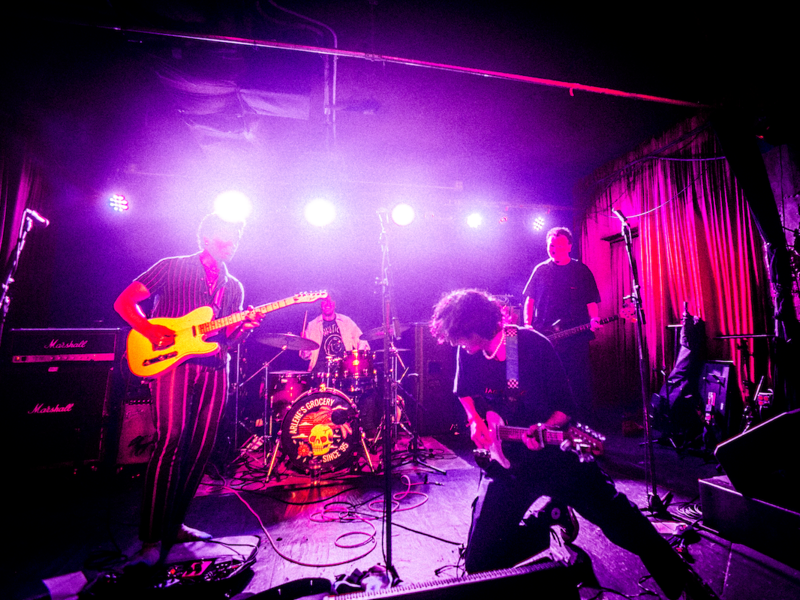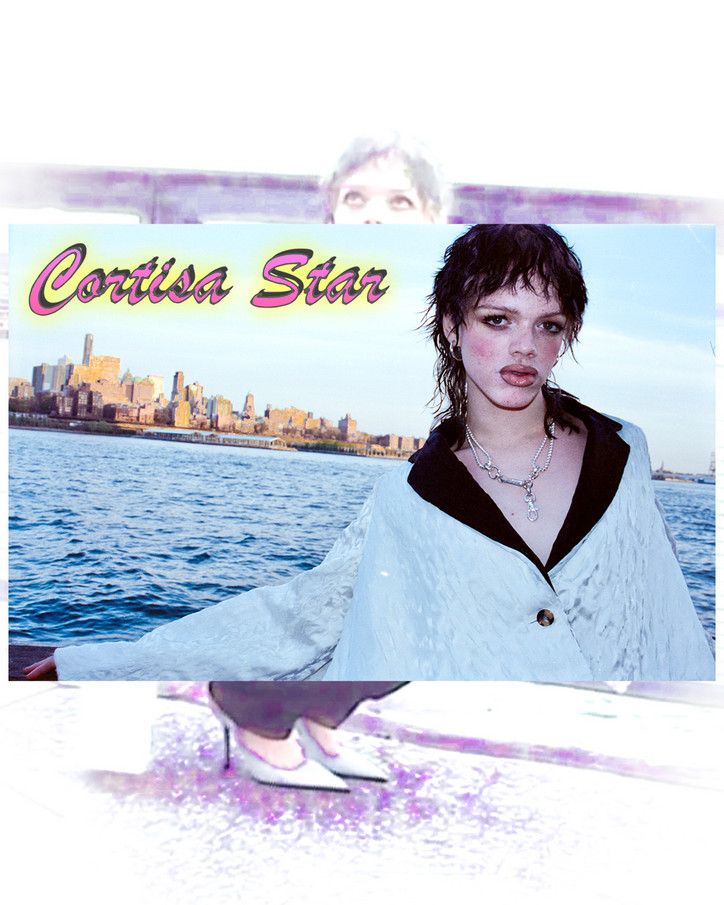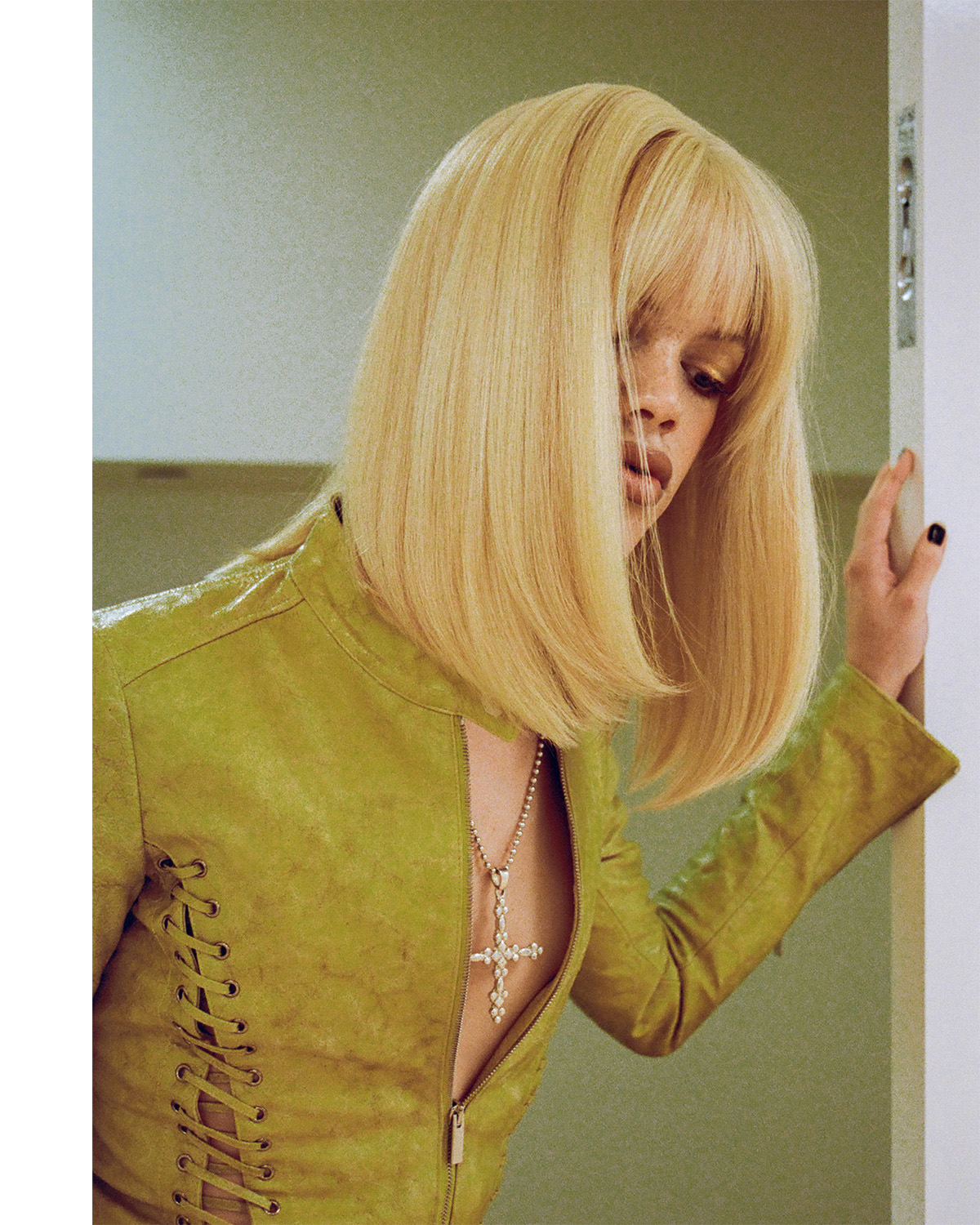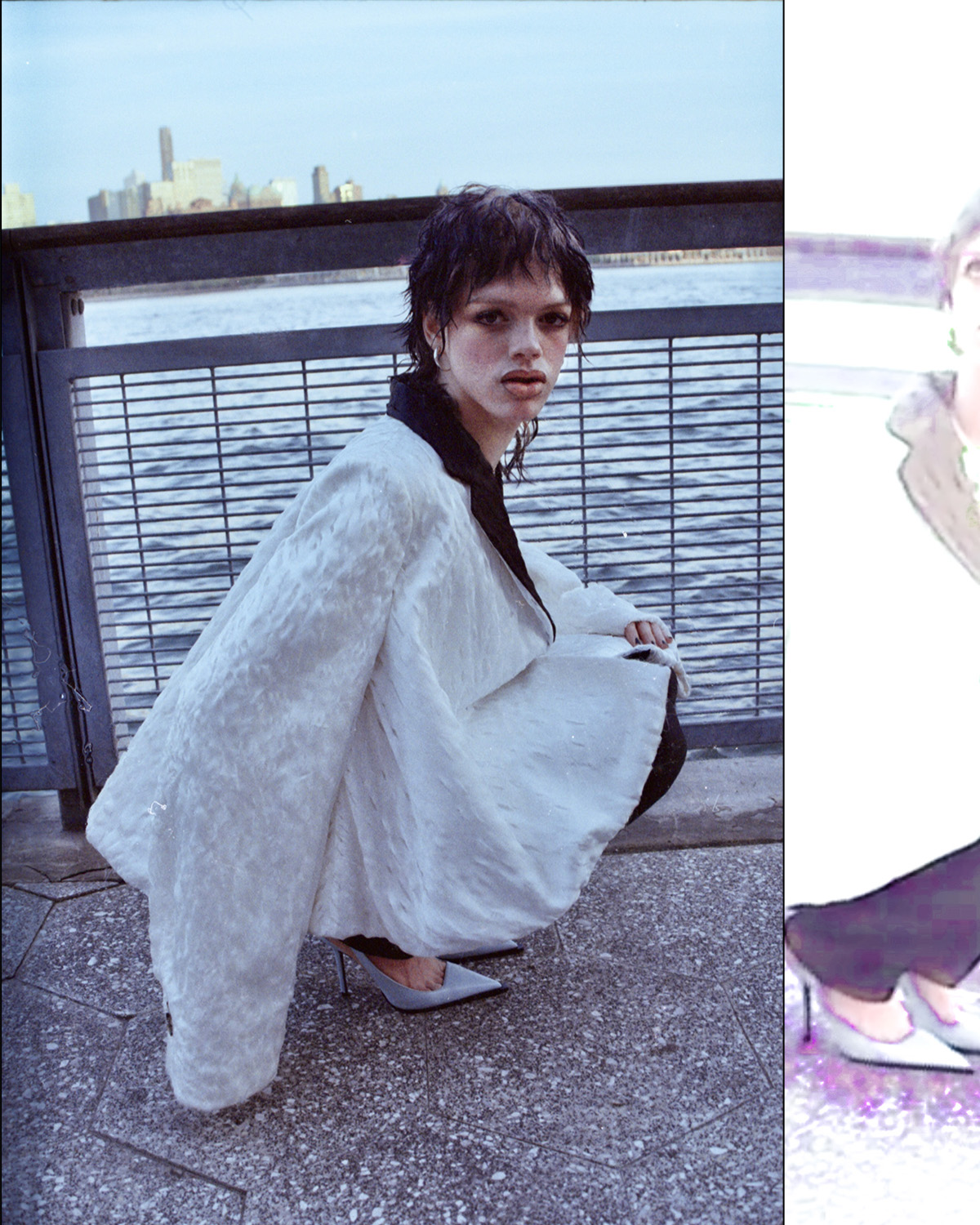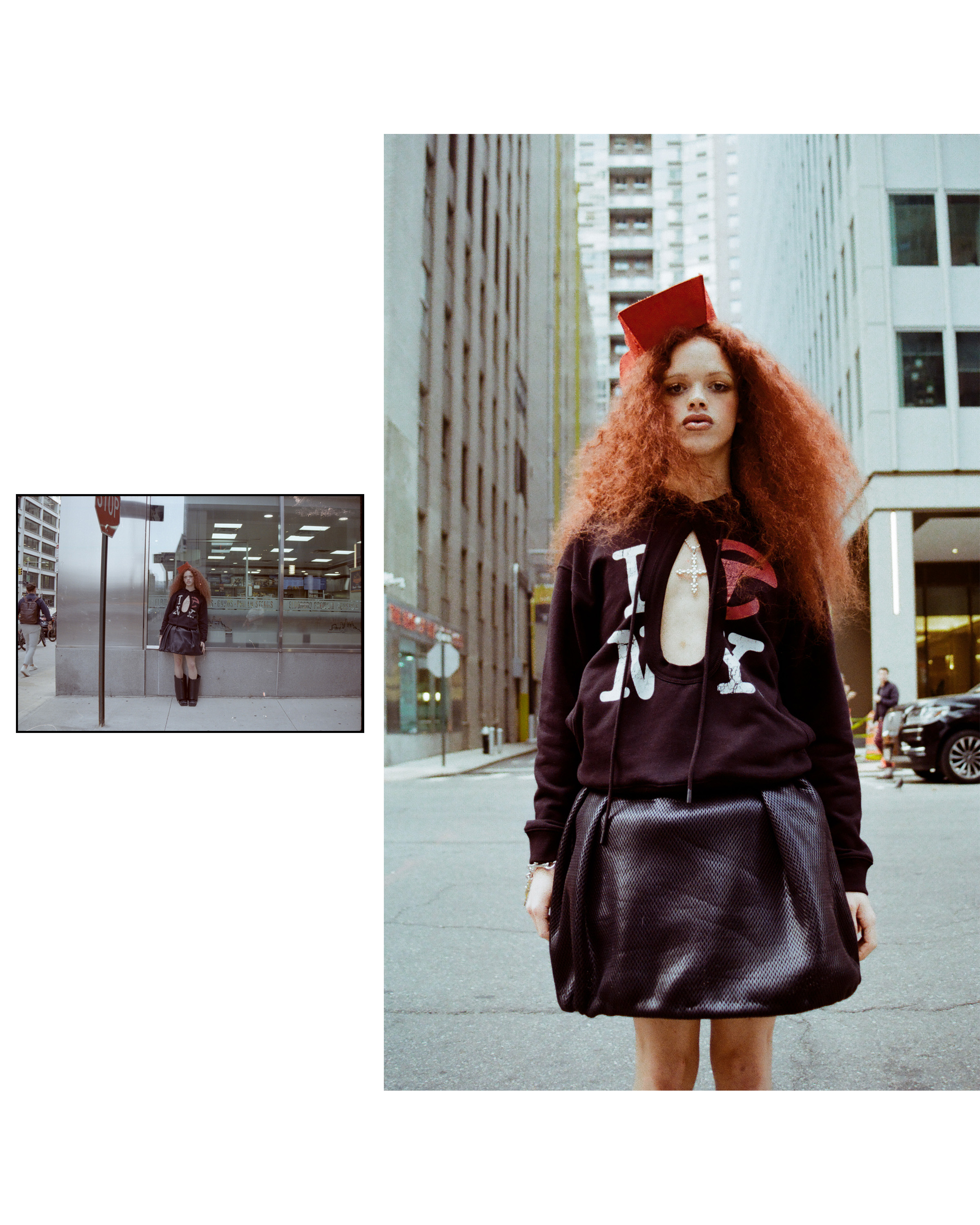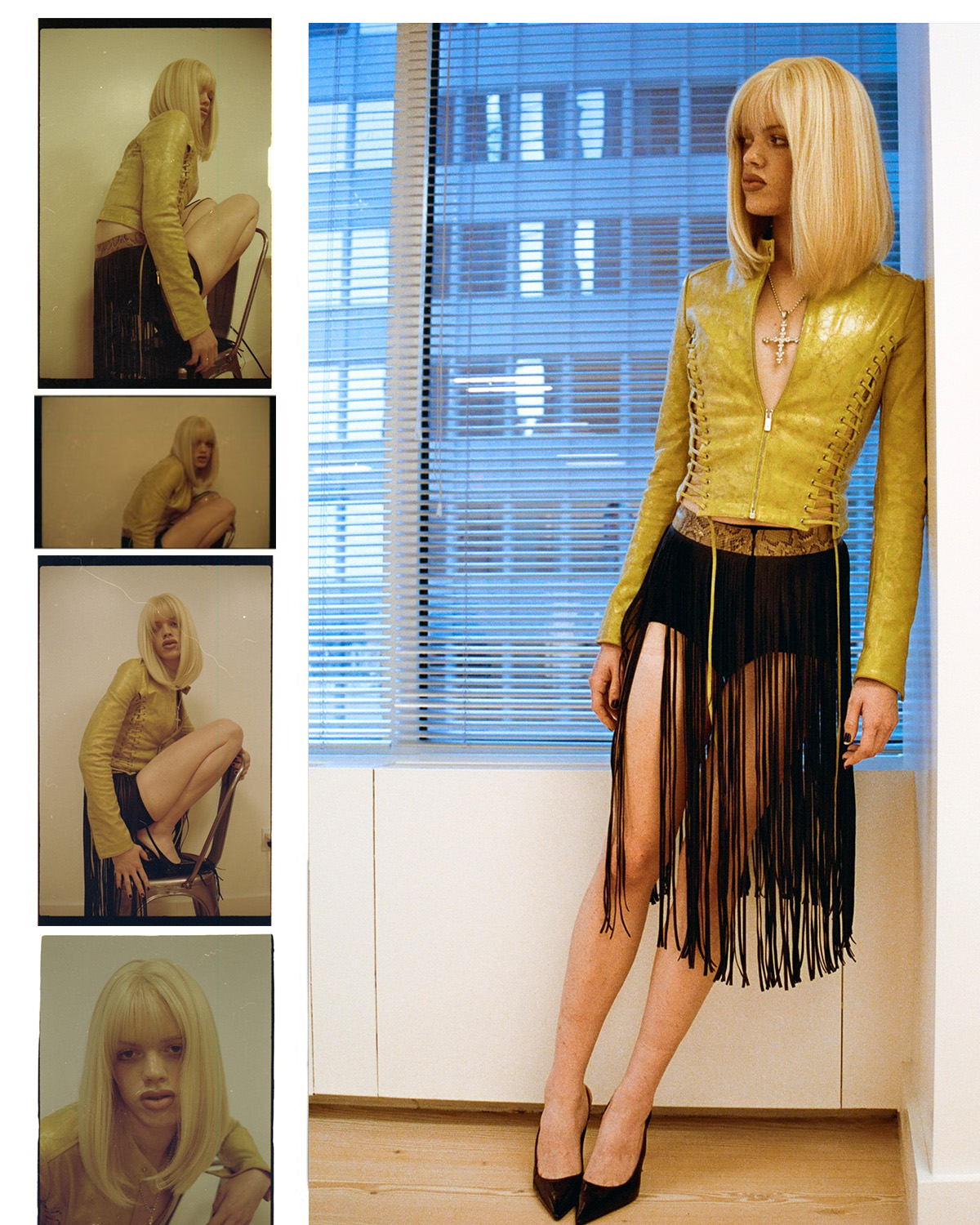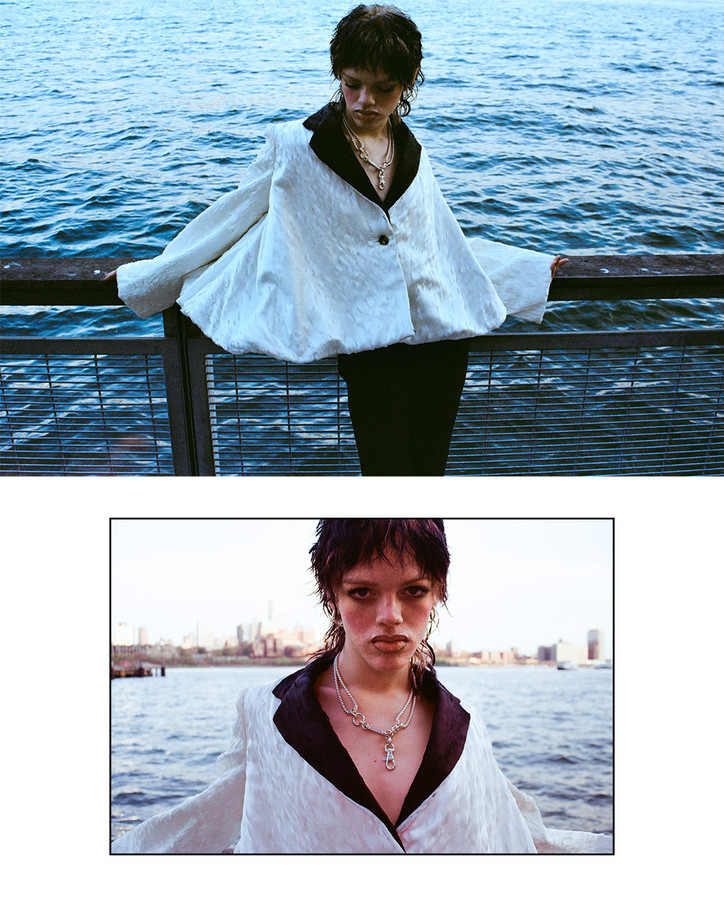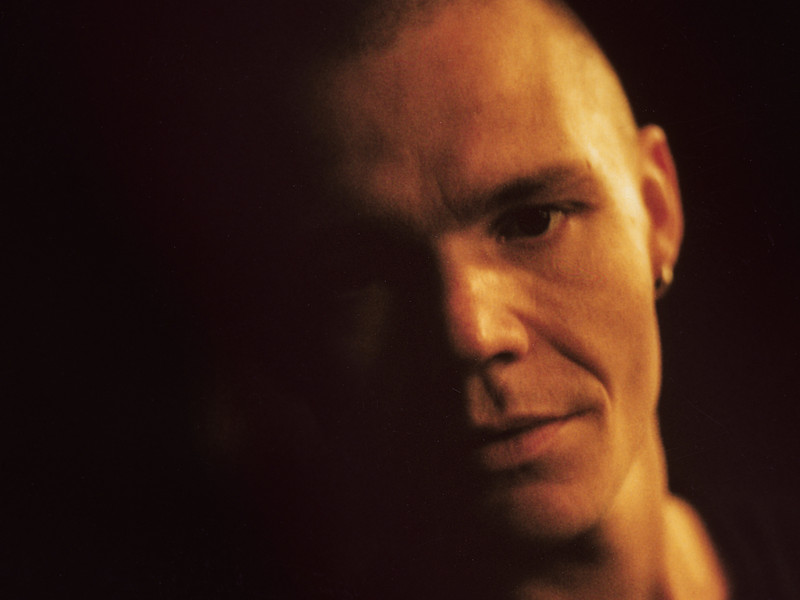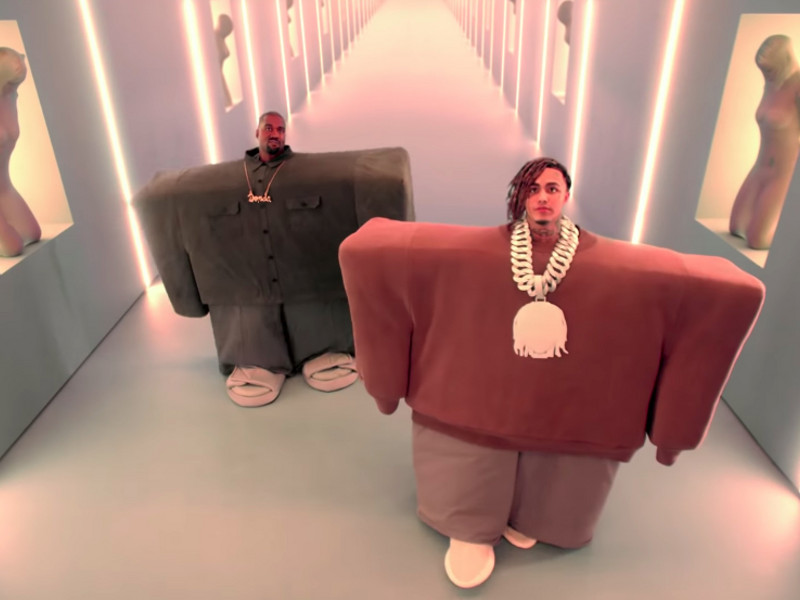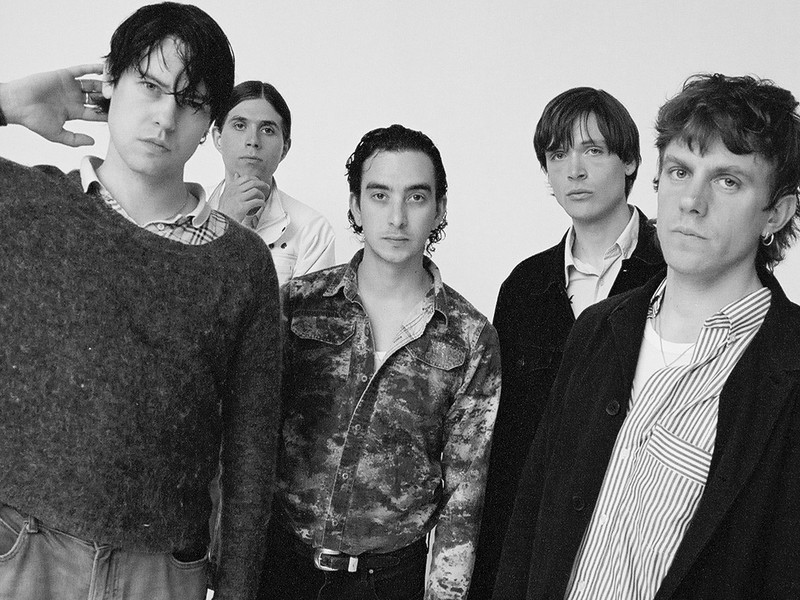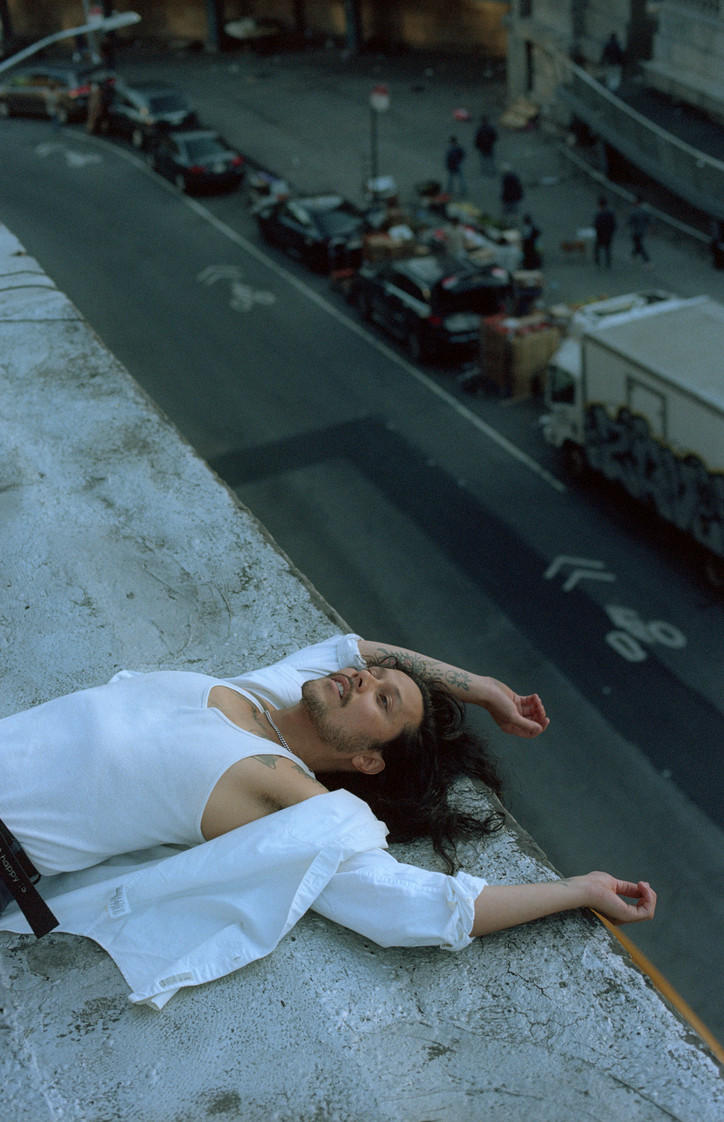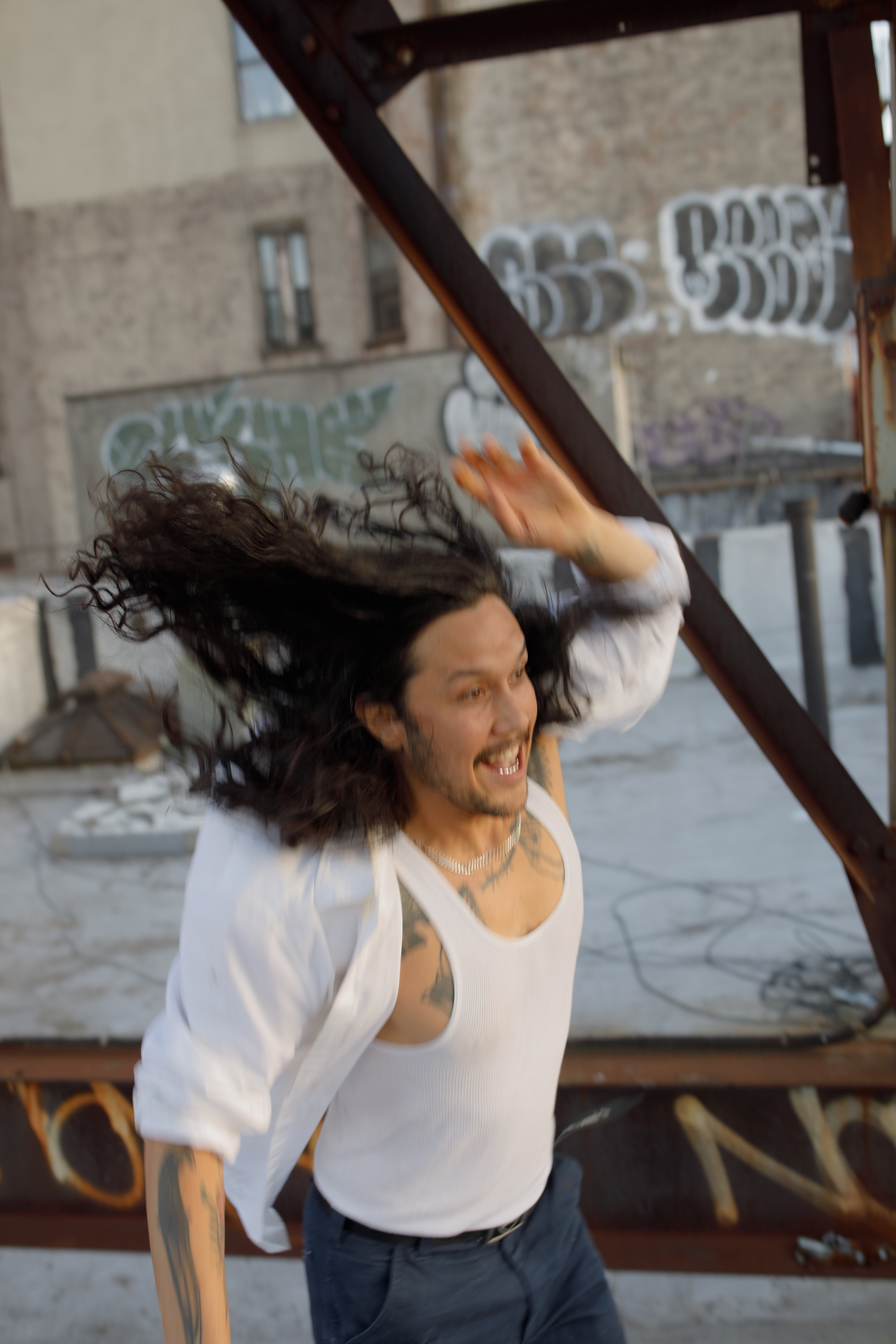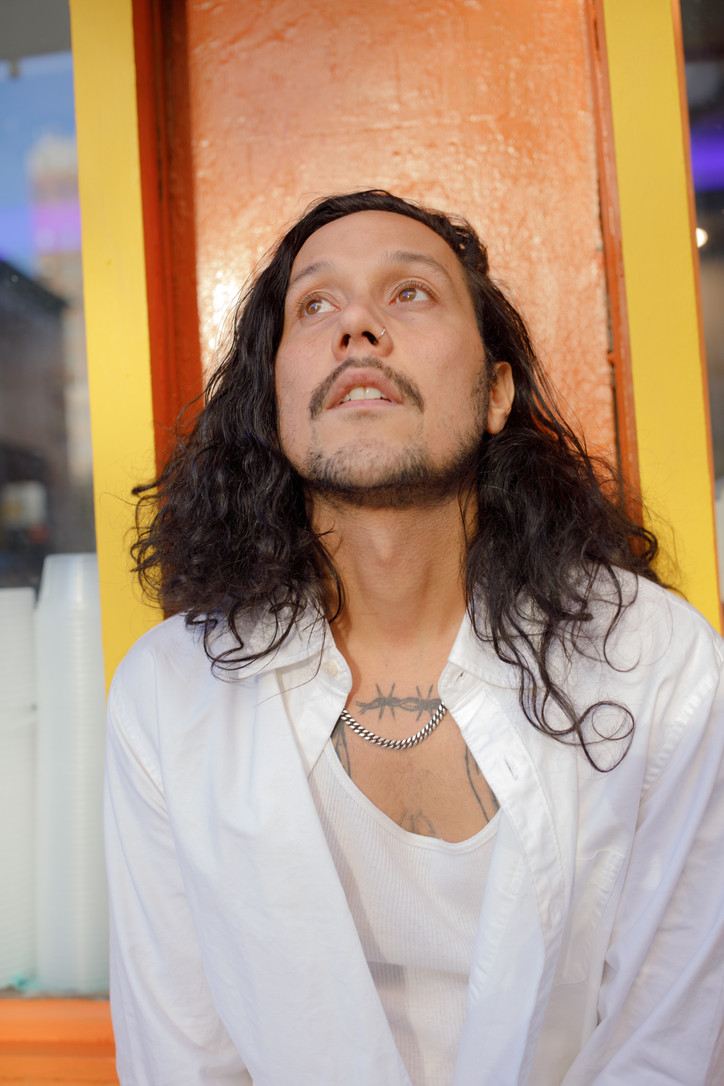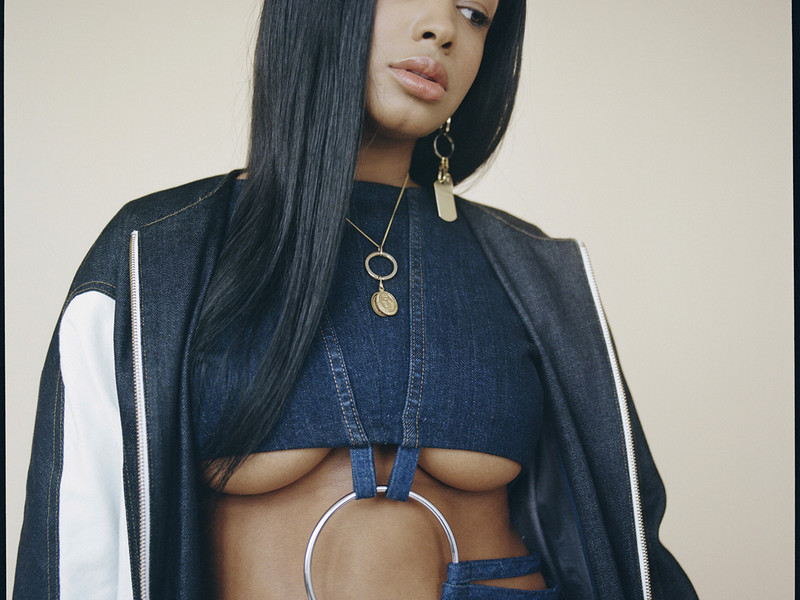Homeland Security
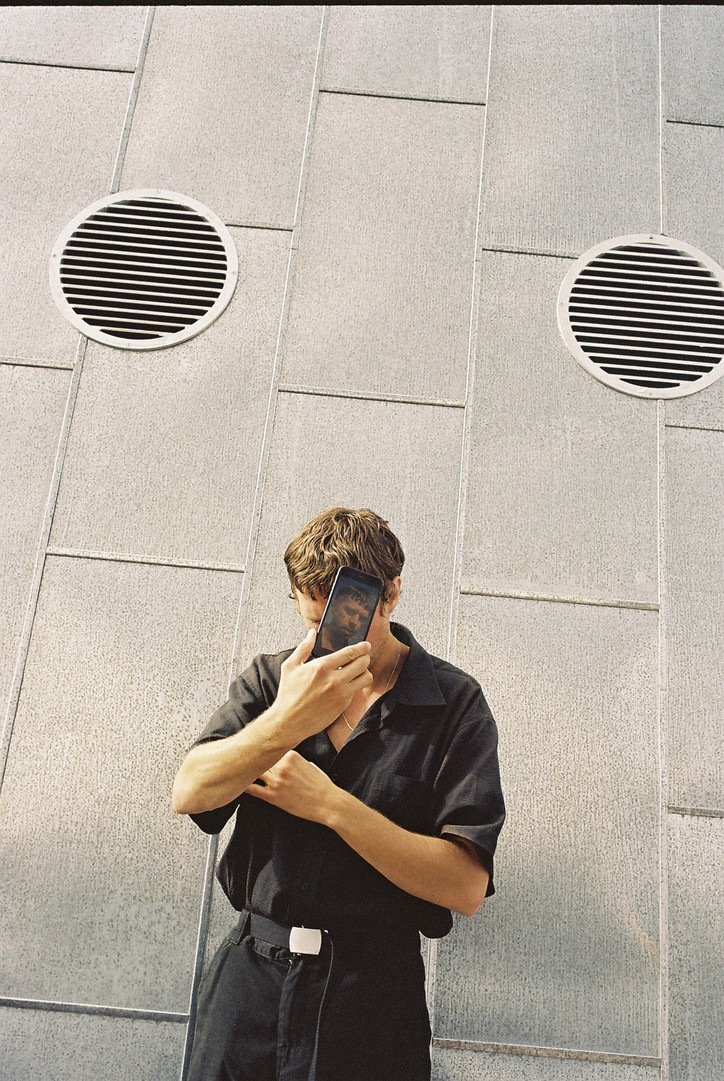
But Goss has a different goal in mind for his music. Having witnessed his girlfriend, the Danish singer (and office favorite) MØ, rise to fame, and the whirlwind of expectations and challenges that have come with it, he is hesitant to arrive in the spotlight.
“Karen’s success has discouraged me a bit from big success,” he admits. “It’s quite fierce. And the pressure is really heavy.”
Though that has made him anxious about the cost of commercial fame, it hasn’t discouraged him from searching for his own place in music. Sometimes, in collaboration with others, but mostly hiding alone in a shared basement studio in Copenhagen, Goss writes songs to deal with the emotional apocalypse that erupts sometimes when his girlfriend is away. It’s how he processes, and ultimately, understands his own feelings.
In recent years, however, Goss has been grappling with who he is—and who he wants to be, both in life, and as an artist. In contrast to most musicians in the current cultural landscape, he has remained resolutely anonymous, instead focusing on cultivating his musical aesthetic and not giving much away about himself or his personal life.
“The first two years of Goss, I just sat alone in a basement and twisted knobs,” he remembers. It was during this time that he wrote his first EP, Healthcare, which he ended up releasing last year. With five songs, the album was upbeat and saccharine, yet seemingly unsure of themselves, proof that Goss was still trying to figure out exactly how he wanted them to sound. Around the same time, he wrote a demo for what would eventually become MØ’s dreamy pop ballad, “Kamikaze,” and in doing so, realized how important collaboration was in his own work.
Fast forward a few years and Goss has finally established his own, unapologetic sound. Listening to Homeland Security, it’s clear that the artist has solidified his vision, and through the process, found his voice. The downtempo pop singles are catchy, yet unassuming. Snuggled between woozy synths and chopped up pianos, Goss creates his own experimental story, an intoxicating stream of consciousness, almost like his own inner dialogue coming to life before our eyes—or, ears.
Lyrically, the record sounds almost like a fleeting thought, too intimate to share out loud. It’s hedonistic, but sincere—it’s clear Goss is an artist who can’t help but wear his heart on his sleeve.
“I feel like it’s the true mirroring of who I am and how I’ve felt in certain periods and times,” he says about the album. “I wanted to write about all kinds of things, but love has tsunamied my life since I met Karen. I’ve even tried to write more political songs, but it doesn’t feel like it’s honest in the same way.”
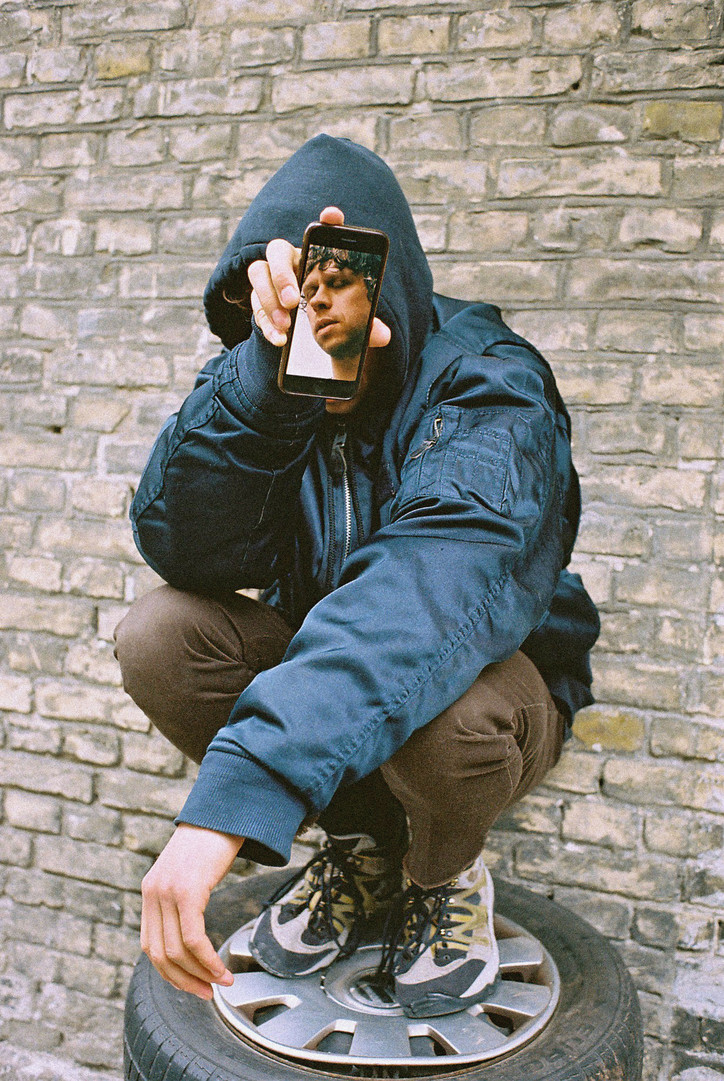

For an artist who, up until this point, has remained protective over his private life and relationship, it’s a bold display of honesty about his relationship, with lyrics that aren’t prophetic or vague—they’re direct stories about how he actually feels.
“Love is extremely easy and super difficult,“ he says. “When Karen is on tour and gone for long periods, after three weeks I hit this extreme feeling of sadness. I use that energy in the songs.“
And that’s exactly what Goss does best—using his own emotion and boiling them down to their simplest, most authentic form.
“I am able to write love songs that are kind of sad, but without paying the price,” he explains, “because Karen always comes back. But [while she’s gone], it’s like my body and my heart don’t always understand it, but my brain knows she’s actually coming home.”
Unhindered by the kind of hyper-masculinity and ironic affection that often governs many artists, Goss is totally unfeigned in his approach to his art. But that doesn’t mean he’s gotten comfortable—he’s just as honest about his music as he is his feelings about love and loss.
“I’m still trying to find the core of what it really is,” he says about his vision. “But I feel like this EP is a big step towards figuring out what I want. I think I’d like to end up somewhere that’s experimental, but still pop songs, which is a bit of a dangerous place because a lot people want to rest there. But you have to find your own place,” adds Goss.
And even if he sees that place eventually changing, toward the end of our conversation, I ask Goss to describe the EP in three words. “Explorative, sensitive, good,” he pauses. “That might be me—at least on that EP—but also in life.”
As for the future? “Karen is dreaming of moving to New York,” he smiles. “So, it’s sort of up to me. It would be a good time—and a good challenge. [...] As a person, it’s important to throw yourself into new situations and do things you’re afraid of.”
‘Homeland Security’ is out now.’

